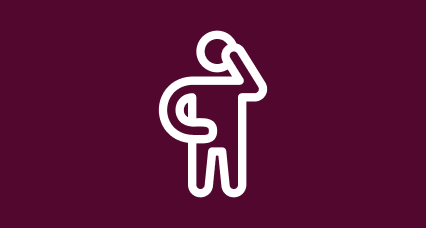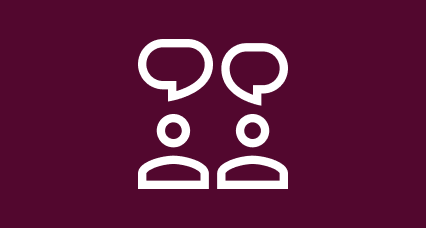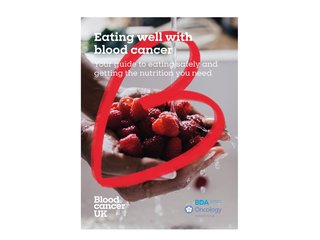Eating well with blood cancer
Whether you're living with leukaemia, lymphoma, myeloma or any other type of blood cancer, eating well is an important part of looking after your body and mind.
What to eat when you have blood cancer
Read our tips about the kinds of foods you should be eating and why eating well matters when you have blood cancer.
Ideas on what to eat

Eating problems
Some people find it hard to eat and enjoy food when they have blood cancer, or are going through treatment. We've gathered some suggestions that might help.
Read more here

Blood cancer and food: your questions
Browse our frequently asked questions and learn more about the facts behind diet and cancer myths.
Discover the facts
Religious fasting and blood cancer
Find out if it's safe to fast when you have blood cancer or are going through treatment, and read more about what you can do if you're not able to fast.
Learn about fasting

Your guide to eating well
Get your free booklet all about eating well with blood cancer. Includes information on having a balanced diet, food safety and tips to help with eating problems.
This information has been accredited with the PIF TICK, the UK's only quality mark for trusted health information.
Last full review 2024. Next full review due 2027. We may make factual updates to the information throughout this period.
Many thanks to specialist haematology dietitians Natasha Jones and Victoria Mace for checking content in this section.
The following pharmaceutical companies helped fund an earlier version of this information, but had no input into the content or direction of the project: Janssen-Cilag Ltd. Read about how we work with the pharmaceutical industry.
